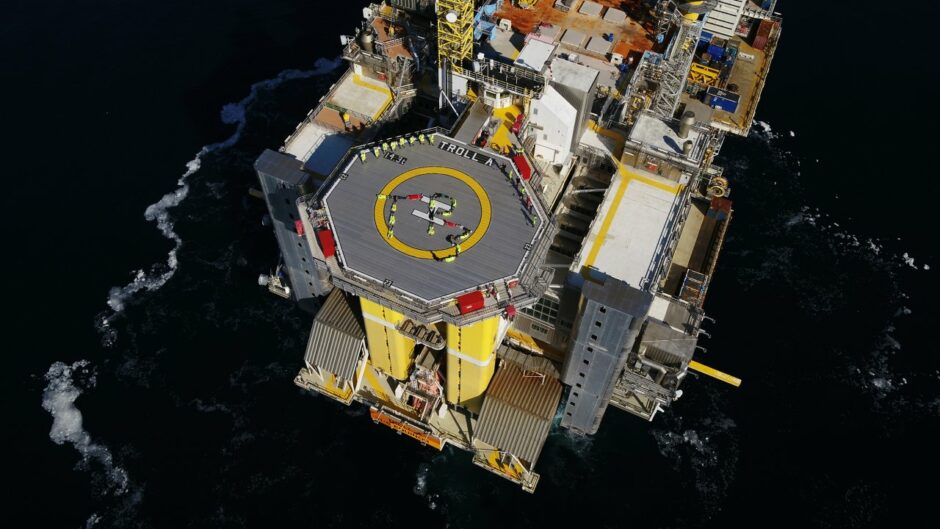
Troll Phase 3, deemed “one of the most profitable projects” in Equinor history, has started up off Norway.
The project is expected to produce 347 billion cubic metres of gas, or 2.2billion barrels of oil equivalent, through to 2050 and beyond.
Equinor has hailed the Troll Phase 3 breakeven price of less than $10 a barrel and emissions of less than 0.1kg per barrel, having made an investment of NOK 8 billion (£667.6m).
Annual state revenues from the phase 3 project are estimated at more than NOK 17 billion (£1.4bn).
The project had been due for start up in the second quarter of 2021, but Equinor said it has been hit by delays from pandemic-related labour shortages and infection control measures.
Arne Sigve Nylund, executive vice president of Projects, Drilling and Procurement, said: “Troll phase 3 is one of the most profitable projects throughout Equinor’s entire history, while at the same time featuring production with record-low CO2 emissions.
“This is thanks to large gas reserves and a development solution mostly based on existing infrastructure, such as pipelines, the processing plant at Kollsnes and, not least, the Troll A platform which receives power from shore.”
The overall Troll field is Norway’s largest gas producer and has generated revenues for the last 25 years.
It was the first platform on the Norwegian continental shelf to be electrified in 1996.
Phase 3 consists of eight wells in two new templates, a new pipeline and umbilical connecting these to Troll A, as well as a new gas processing module on the platform.
Operator Equinor has a 30.58% stake, partnered with Petoro AS (56%), AS Norske Shell (8.1%), TotalEnergies EP Norge (3.69%) and ConocoPHillips Skandinavia AS (1.62%).
Kjetil Hove, Equinor’s executive vice president for Exploration and Production Norway, said: “Troll phase 3 will extend the life of Troll A and the Kollsnes processing plant beyond 2050, and the plateau period by 5-7 years.
“This will help secure jobs offshore, at Sandsli and at Kollsnes for both Equinor and its suppliers for several decades into the future.”
Recommended for you

